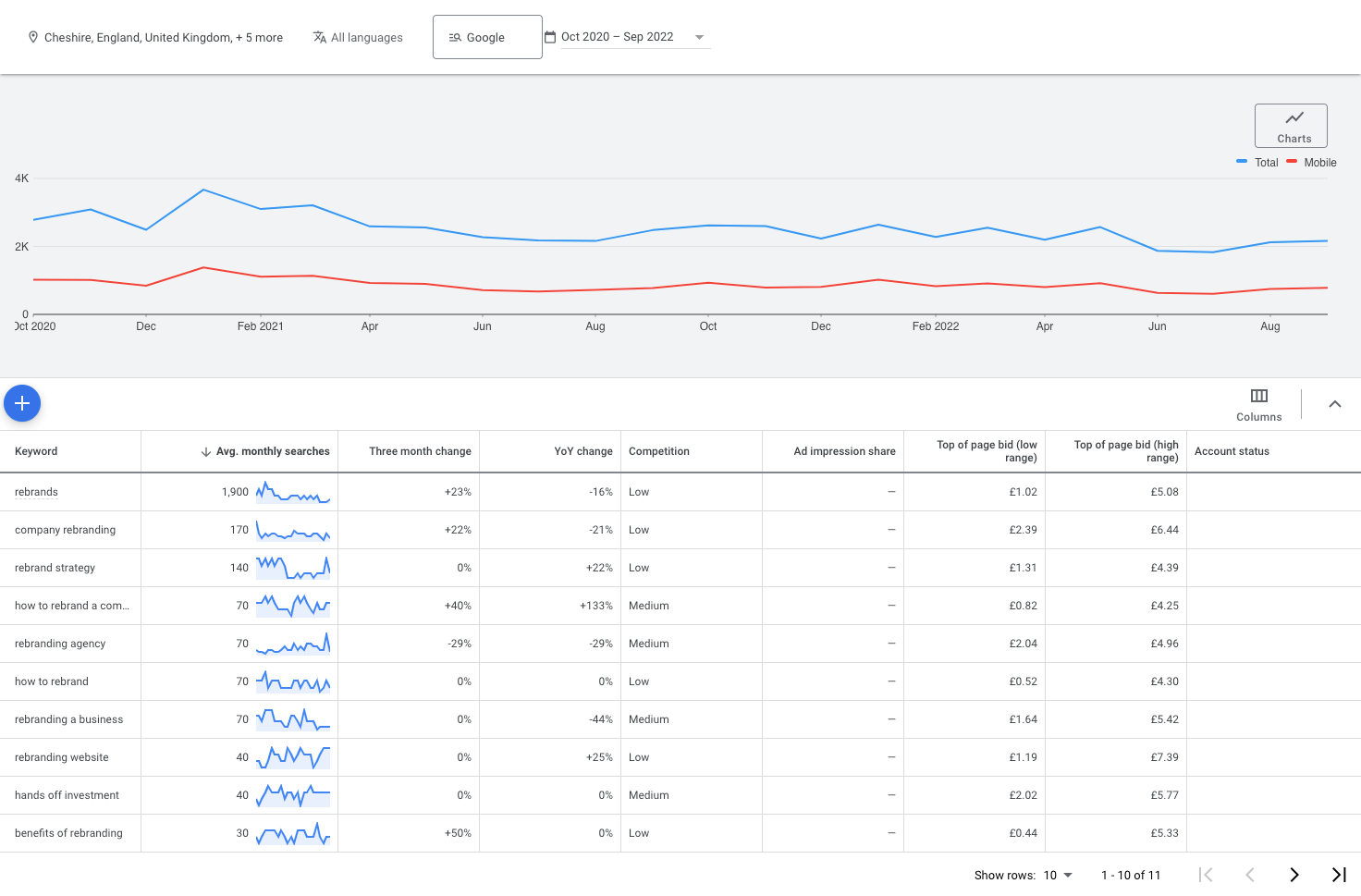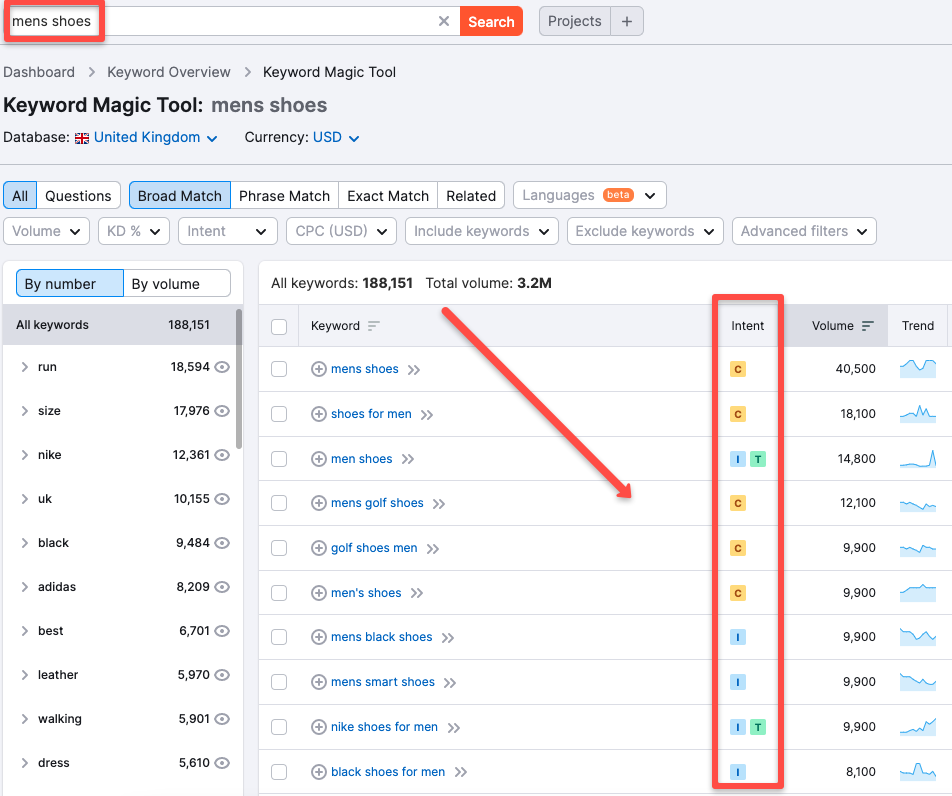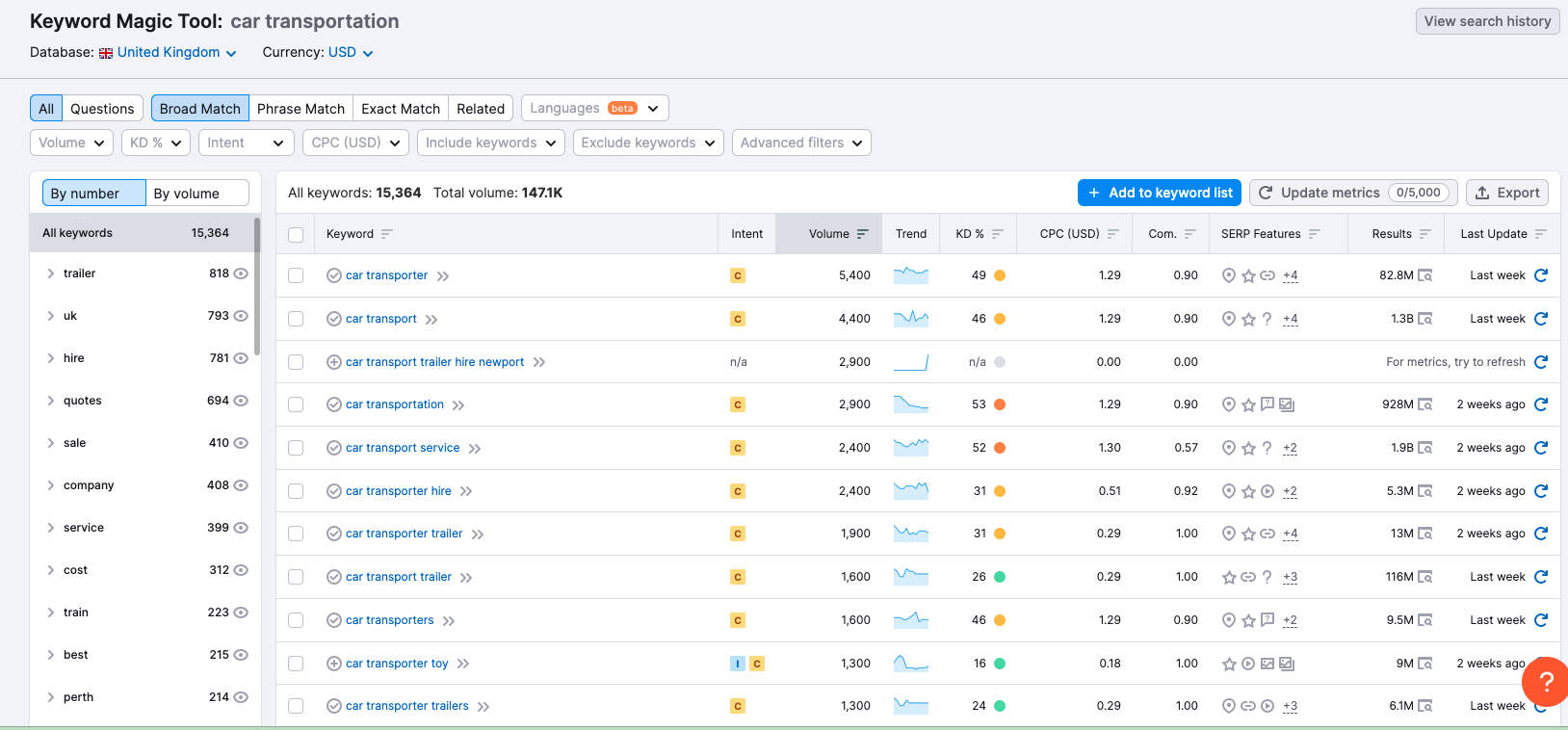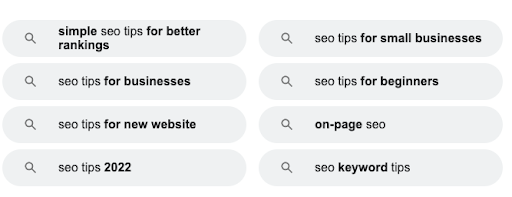How to put your keyword research into practice
Now that you know how to do keyword research and you have a bunch of keywords to target, here’s how to practically apply them to your content:
Prioritise and group your keywords
Once you have researched and prepared a list of keywords, it’s important to group them. This will make it easier to target them in your SEO strategy and prioritise those that are most important. The list should ideally consist of both broad match keywords and long tail keywords. These can be grouped by topic, product, service or any other way that makes sense for your business.
Map your keywords to site content
The next step is to map your keywords to existing content on your website or blog. This will help you to see which pages and posts are already optimised for certain keywords and which ones need more work. You can also use this mapping process to plan new content ideas, such as new landing pages or blog posts. It’s important to understand the purpose of each page, what do you want your visitors to do? Is this informational content or commercial content? If you are planning a new website this will be established during your planning and UX phases where you design the site architecture and develop your content plan.
Include keywords throughout your website
Use your keywords in the title tags, meta descriptions, header tags, alt text and body copy on your website. However, these should appear naturally and read well within content, avoiding any keyword stuffing (adding too many instances for the purpose of trying to rank better in the Search Engine listings).
Create keyword-focused content
Write blog posts, articles, guides and other forms of content that are focused on your target keywords. Research shows that long-form content tends to perform best in SEO so the content should be quite lengthy and at least the same length as the top performing articles which are already ranking for your target keywords. Remember you are writing for humans first and foremost, your content needs to be useful and meet their needs. Algorithms are very sophisticated these days, even if you rank well for a particular term and get visitors to your page, you will be penalised in the SERPs if your audience doesn’t engage with your content (high bounce rate, low dwell time, no onward journeys etc).
Use SEO tools
There are many SEO reporting and tracking tools available which can help you to improve your website’s performance in the search engines. These tools can also be used to track keyword rankings, helping you to monitor your progress and identify any areas where you need to make changes.
Build links with keyword-rich anchor text
Linking to your website from other websites is a key ranking factor in SEO. When building links, use keywords in the anchor text to tell Google what the page you’re linking to is about.
By following these tips, you can start to see some real SEO results from your keyword research. Just remember to keep your keywords relevant, targeted and used in a way that sounds natural. With a bit of practice, you’ll be a keyword research pro in no time.
In summary, keyword research is an important part of SEO that should not be overlooked. By understanding your audience’s needs and wants, you can select the right keywords to target which will help you to rank higher in search engine results pages. With a little time and effort, you can easily find the best keywords for your website which will result in more traffic and leads.
If you need help with your keyword research or how to plan an effective digital marketing strategy, get in touch with us at Think. Call our Marketing agency today on 0161 507 2410 or send an email to enquiry@thinkdesignagency.co.uk.





